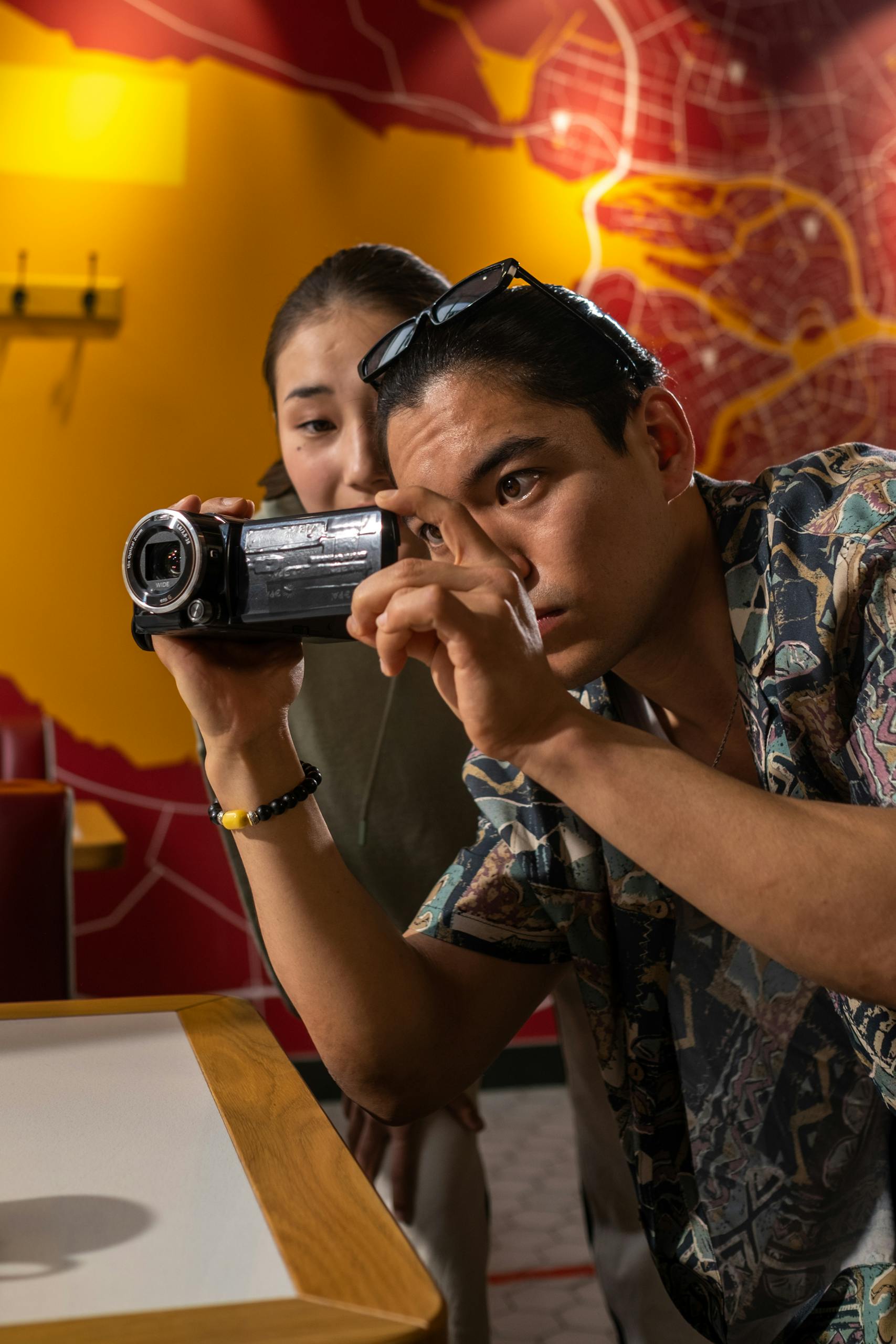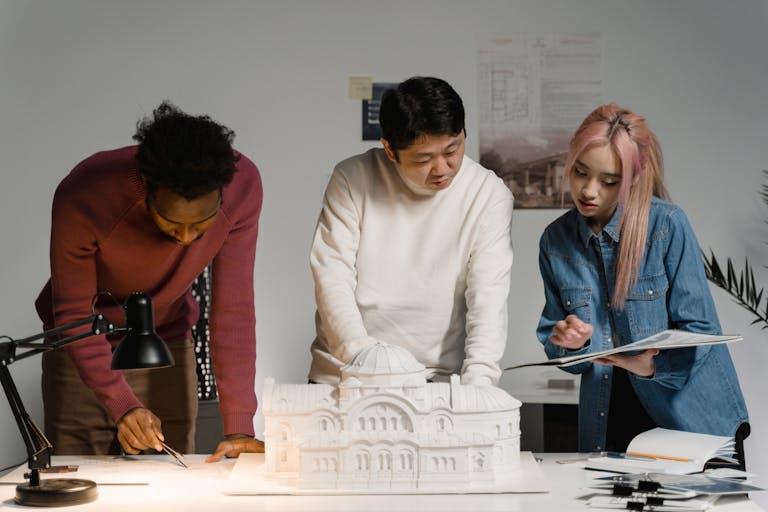Introduction to Mike Wolfe’s Passion Project
Mike Wolfe, the star of American Pickers, is more than a TV personality hunting for antiques. His passion project is a heartfelt mission to preserve America’s history, revitalize small towns, and share stories through restoration and storytelling. This guide dives deep into the essence of the Mike Wolfe passion project, exploring its origins, impact, and why it resonates with so many. From historic buildings to vintage motorcycles, Wolfe’s work blends nostalgia with modern purpose, creating a movement that inspires communities and individuals alike. Whether you’re a fan of the show or curious about cultural preservation, this article uncovers the layers of his vision.
The project began as an extension of Wolfe’s childhood curiosity, where he scoured Iowa backroads for forgotten treasures. What started with rusty bikes evolved into a nationwide effort to save historic structures and artifacts. Unlike typical restoration ventures, the Mike Wolfe passion project isn’t about profit—it’s about legacy. His work in towns like Columbia, Tennessee, and LeClaire, Iowa, shows how preservation can spark economic and cultural renewal. By turning old buildings into vibrant hubs, Wolfe proves that history can thrive in the present.
This guide will walk you through every facet of the project, from its roots to its real-world impact. You’ll learn how Wolfe’s efforts go beyond antiques, how you can get involved, and why his approach is a blueprint for sustainable creativity. Let’s explore the inspiring world of Mike Wolfe’s passion project and its lasting influence.
The Origins of Mike Wolfe’s Passion Project
Mike Wolfe’s passion project traces back to his childhood in Bettendorf, Iowa, where he developed a love for overlooked objects. As a young boy, he collected discarded bikes and signs, seeing stories where others saw junk. This curiosity laid the foundation for American Pickers and his broader mission to preserve Americana. His early experiences shaped a philosophy: every item and place holds a narrative worth saving. The Mike Wolfe passion project emerged from this belief, blending his personal values with a professional platform.
When American Pickers launched in 2010, it gave Wolfe a national stage to share his vision. The show wasn’t just about finding antiques; it highlighted the stories of small-town America. Off-camera, Wolfe began investing in preservation, focusing on historic buildings and forgotten spaces. His passion project became a way to extend his TV work into tangible, community-driven efforts. By restoring structures in places like Columbia, Tennessee, he started transforming entire neighborhoods, proving that history could fuel progress.
The origins of the project are deeply personal yet universally relatable. Wolfe’s mission resonates because it’s rooted in authenticity—a desire to honor the past while inspiring the future. His journey from a curious kid to a cultural steward shows how passion can evolve into a movement. Understanding these roots helps us appreciate the depth of the Mike Wolfe passion project and its impact on communities across America.
What Makes the Mike Wolfe Passion Project Unique

The Mike Wolfe passion project stands out because it’s more than collecting antiques—it’s about reviving history through storytelling and restoration. Unlike typical preservation efforts, Wolfe focuses on emotional connections, turning forgotten buildings and objects into living narratives. His work in small towns like LeClaire, Iowa, and Nashville, Tennessee, transforms decaying structures into community hubs, blending vintage charm with modern utility. This unique approach sets his project apart, making it a cultural movement rather than a mere hobby.
Wolfe’s project is also distinctive for its community focus. He collaborates with local artisans, historians, and residents to ensure restorations respect a town’s identity. For example, in Columbia, Tennessee, he turned an industrial strip into a vibrant mix of shops and studios, boosting local economies. His brand, Two Lanes, further amplifies this by sharing stories of rural America through blogs and merchandise, inviting fans to join the mission. This inclusive, hands-on approach makes the Mike Wolfe passion project a shared endeavor.
What truly elevates the project is its blend of nostalgia and innovation. Wolfe doesn’t just preserve; he reimagines. By integrating historic elements into modern spaces, he shows that the past can inspire contemporary design and sustainability. His work challenges the idea that old is obsolete, proving that the Mike Wolfe passion project is a forward-thinking mission to keep America’s heritage alive and relevant.
Architectural Preservation: Saving America’s Past
A cornerstone of the Mike Wolfe passion project is architectural preservation. Wolfe believes old buildings are more than bricks—they’re storytellers of America’s history. His restoration work in places like Columbia, Tennessee, and LeClaire, Iowa, saves historic structures from demolition, turning them into vibrant spaces. For instance, in Columbia, he restored 19th-century buildings into shops and cultural hubs, preserving their character while boosting tourism. This approach shows how preservation can blend heritage with economic growth.
Wolfe’s process is meticulous, involving research, structural assessments, and collaboration with experts to maintain authenticity. He avoids modernizing buildings at the cost of their soul, keeping original features like tin ceilings or beadboard. His work in Nashville, for example, preserved early 20th-century architecture threatened by urban development. By doing so, the Mike Wolfe passion project ensures that future generations can experience history firsthand, not just in museums but in living, functional spaces.
Beyond aesthetics, Wolfe’s restorations have practical benefits. They create jobs, attract visitors, and reduce environmental waste by repurposing existing structures. His philosophy—that preserving the past fuels the future—makes his project a model for sustainable development. The Mike Wolfe passion project proves that saving historic buildings isn’t just nostalgic; it’s a powerful way to strengthen communities and preserve cultural identity for years to come.
Storytelling: The Heart of Wolfe’s Mission
Storytelling is the soul of the Mike Wolfe passion project. Every antique, building, or motorcycle Wolfe restores carries a narrative he’s determined to share. On American Pickers, he brought forgotten stories to millions, but his passion project takes this further by embedding narratives in physical spaces. For example, his Antique Archaeology stores in Iowa and Tennessee aren’t just shops—they’re museums where each item’s backstory is celebrated, connecting visitors to America’s past.
Wolfe uses multiple platforms to tell these stories, from social media to his Two Lanes blog, where he shares tales of artisans and small-town history. His approach transforms objects like a rusted sign or a vintage bike into emotional anchors, sparking curiosity and pride. By highlighting the people and places behind these artifacts, the Mike Wolfe passion project makes history relatable, showing that every item has a voice worth hearing.
This focus on storytelling inspires others to value their own heritage. Wolfe’s workshops and community events encourage people to see history as alive, not confined to textbooks. By weaving narratives into his restorations, he ensures that the Mike Wolfe passion project isn’t just about saving objects—it’s about preserving the human experiences they represent, creating a lasting connection between past and present.
Community Impact: Revitalizing Small Towns
The Mike Wolfe passion project is a lifeline for small-town America. By restoring historic buildings, Wolfe transforms neglected spaces into economic and cultural hubs. In Columbia, Tennessee, his restoration of an industrial strip created a mixed-use development with shops and markets, drawing tourists and boosting local businesses. This revitalization fosters community pride and economic growth, proving that preservation can be a catalyst for change.
Wolfe’s approach involves locals at every step, from artisans to historians, ensuring projects reflect a town’s unique identity. His LeClaire, Iowa, restorations, including Antique Archaeology, turned a quiet downtown into a tourist destination. These efforts show how the Mike Wolfe passion project goes beyond aesthetics—it creates jobs, supports small businesses, and strengthens community bonds. By involving residents, Wolfe ensures his work has lasting impact.
The ripple effects are profound. Restored buildings attract visitors, who spend money at local cafes and shops, fueling economies. Wolfe’s focus on sustainability—repurposing old structures instead of building new ones—also benefits the environment. The Mike Wolfe passion project demonstrates that preserving history isn’t just about nostalgia; it’s about building vibrant, connected communities that thrive in the modern world while honoring their roots.
Two Lanes: A Platform for Rural America
Two Lanes, Wolfe’s lifestyle brand and blog, is a key pillar of the Mike Wolfe passion project. Named after the two-lane roads of rural America, it celebrates small-town life through stories, photos, and merchandise. From blog posts about artisans to products like handmade pottery, Two Lanes connects fans with the authentic spirit of Wolfe’s mission. It’s more than a brand—it’s a cultural advocacy tool.
Through Two Lanes, Wolfe shares narratives of craftspeople and historic places, amplifying voices often overlooked. The platform’s growth—evidenced by a 280% spike in “Mike Wolfe passion project” searches—shows its resonance with audiences craving authenticity. By selling goods directly from artisans, Two Lanes supports small businesses and micro-economies, aligning with Wolfe’s goal of community revitalization.
The platform also invites fans to engage directly, whether through sharing road-trip photos or joining restoration events. This interactivity makes Two Lanes a living extension of the Mike Wolfe passion project, encouraging people to explore backroads, value history, and support local makers. By blending digital storytelling with tangible impact, Two Lanes ensures Wolfe’s mission reaches a global audience while staying rooted in small-town values.
Vintage Motorcycles: Symbols of Freedom
Vintage motorcycles, especially Indian Motorcycles, are a personal passion for Wolfe and a key element of his project. He sees these machines as more than vehicles—they’re symbols of American freedom and craftsmanship. Restoring a 1930s Indian Hillclimber, for instance, isn’t just about mechanics; it’s about reviving a piece of history. Wolfe often displays these bikes as art in his restored spaces, blending function and storytelling.
Wolfe’s restorations are meticulous, involving research and collaboration with collectors to source authentic parts. His work preserves the legacy of brands like Harley-Davidson and Indian, connecting them to broader cultural narratives. By involving fans in sourcing parts, the Mike Wolfe passion project becomes a communal effort, inviting others to share in the joy of preservation.
These motorcycles also inspire Wolfe’s broader vision. They represent rebellion, innovation, and the open road—values he infuses into his restorations and Two Lanes brand. By showcasing these machines, the Mike Wolfe passion project celebrates analog history in a digital age, reminding us that craftsmanship and stories endure, connecting past and present in powerful ways.
Sustainability in the Mike Wolfe Passion Project
Sustainability is a core principle of the Mike Wolfe passion project. By restoring old buildings and repurposing antiques, Wolfe reduces waste and promotes eco-conscious practices. Instead of demolishing historic structures, he breathes new life into them, saving materials and preserving cultural value. This approach contrasts with modern development’s often wasteful practices, making his project a model for sustainable preservation.
In Columbia, Tennessee, Wolfe’s restorations use original materials like wood and brick, minimizing environmental impact. His Antique Archaeology stores showcase repurposed items, encouraging visitors to value reuse over consumption. This focus aligns with growing global interest in sustainability, showing how the Mike Wolfe passion project bridges heritage with modern environmental concerns.
Wolfe’s work also promotes cultural sustainability. By saving stories and spaces, he ensures that future generations inherit a rich historical legacy. His emphasis on reusing rather than discarding inspires others to adopt similar practices, making the Mike Wolfe passion project a powerful example of how passion can drive both environmental and cultural stewardship in a fast-paced world.
Challenges of the Mike Wolfe Passion Project
The Mike Wolfe passion project, while inspiring, faces significant challenges. Restoring historic buildings is costly, often requiring more funds than new construction. Structural repairs, compliance with preservation laws, and sourcing period-appropriate materials add to the expense. Wolfe’s commitment to authenticity means he doesn’t cut corners, which can strain resources and timelines.
Time is another hurdle. Balancing American Pickers, Two Lanes, and restoration projects demands immense dedication. Wolfe’s hands-on approach—collaborating with artisans and communities—requires patience, especially when navigating bureaucratic approvals or community skepticism. Despite these obstacles, his persistence ensures that each project maintains its integrity and impact.
These challenges highlight Wolfe’s resilience. Financial risks and time constraints haven’t deterred him; instead, they’ve shaped a thoughtful process that prioritizes quality over speed. The Mike Wolfe passion project teaches that meaningful work requires overcoming obstacles, offering a lesson for anyone pursuing a passion-driven endeavor. His ability to navigate these hurdles makes his achievements even more remarkable.
How Wolfe Engages Fans in His Mission
Wolfe’s ability to involve fans sets the Mike Wolfe passion project apart. Through social media, Two Lanes, and events like Columbia Motor Alley’s “Rip & Ship” days, he invites people to participate in preservation. Fans can share road-trip photos with #MikeWolfePassionProject or volunteer in restoration workshops, creating a sense of shared purpose.
His Antique Archaeology stores offer immersive experiences, where visitors engage with history through curated displays. Wolfe also collaborates with fans to source parts for motorcycle restorations, turning collectors into partners. This inclusivity makes the Mike Wolfe passion project a movement, not just a personal endeavor, fostering a community of history lovers.
By sharing stories on platforms like Instagram and his blog, Wolfe inspires fans to explore their own local history. His call to action—take a road trip, support artisans, or preserve a local landmark—empowers individuals to contribute. The Mike Wolfe passion project shows that passion is contagious, inviting everyone to play a role in preserving America’s heritage.
The Economic Impact of Wolfe’s Work
The Mike Wolfe passion project delivers measurable economic benefits to small towns. Restored buildings, like those in Columbia, Tennessee, become hubs for businesses, attracting tourists who spend on local goods and services. In LeClaire, Iowa, Antique Archaeology has turned a quiet downtown into a bustling destination, creating jobs and boosting revenue.
These projects don’t just save history—they stimulate growth. Restored spaces house cafes, shops, and studios, providing platforms for artisans and entrepreneurs. Wolfe’s focus on authenticity draws visitors seeking unique experiences, further fueling local economies. The Mike Wolfe passion project proves that preservation can be a powerful economic driver.
By collaborating with local tourism boards and businesses, Wolfe ensures his projects align with community needs. His work shows that investing in history can yield long-term financial rewards, making the Mike Wolfe passion project a blueprint for sustainable economic revitalization in small-town America.
The Future: 100 Buildings, 100 Stories
Wolfe’s next ambitious goal is the “100 Buildings, 100 Stories” campaign, aiming to restore one historic building in every U.S. state by 2027. With over 20 projects completed, he’s already making progress. Each restoration preserves a building and its story, creating a nationwide network of cultural landmarks. This vision amplifies the Mike Wolfe passion project’s impact, inspiring others to join the cause.
The campaign blends Wolfe’s core values: preservation, storytelling, and community. By documenting each project through Two Lanes and social media, he’ll share these stories globally, encouraging others to value their local history. The initiative also supports artisans and local economies, reinforcing the project’s holistic approach.
This bold goal faces challenges, from funding to logistics, but Wolfe’s track record suggests he’ll succeed. The “100 Buildings, 100 Stories” campaign positions the Mike Wolfe passion project as a lasting legacy, proving that one person’s passion can reshape how we view and preserve America’s past.
Why the Mike Wolfe Passion Project Matters
The Mike Wolfe passion project matters because it fights cultural erosion in a fast-paced world. As small towns fade and analog skills vanish, Wolfe’s work preserves the stories, buildings, and craftsmanship that define America. His restorations ensure that history remains tangible, not confined to digital archives or museums.
Beyond preservation, the project inspires. It shows how personal passion can spark widespread change, encouraging individuals to explore their own heritage. By blending nostalgia with modern relevance, Wolfe proves that the past can inform a richer future. The Mike Wolfe passion project is a call to action for anyone who values authenticity and community.
Its cultural and economic impact makes it a model for sustainable preservation. Wolfe’s work reminds us that history isn’t just about looking back—it’s about building forward. The Mike Wolfe passion project is a movement that connects people, places, and stories, ensuring America’s heritage endures for generations.
How to Start Your Own Passion Project
Inspired by the Mike Wolfe passion project? Starting your own is simpler than you think. Begin with curiosity—identify something you love, whether it’s restoring furniture or documenting local history. Start small, like Wolfe did with bikes, and let your passion guide you. Research your interest, connect with others, and share your journey through blogs or social media.
Consistency is key. Wolfe turned a childhood hobby into a movement by showing up daily, even when it wasn’t glamorous. Don’t wait for permission—start experimenting, whether it’s restoring a chair or exploring a local landmark. Use platforms like Instagram to share your story, building a community around your passion.
Finally, embrace challenges as learning opportunities. Wolfe faced financial and time constraints but persisted. Create a plan, set small goals, and seek local collaborators. The Mike Wolfe passion project shows that passion, patience, and authenticity can turn a small idea into a meaningful legacy. Start today, and let your story unfold.
FAQs About the Mike Wolfe Passion Project
What is the Mike Wolfe passion project?
It’s a mission to preserve American history through restoring historic buildings, storytelling, and supporting artisans, extending beyond American Pickers.
Where is the project based?
It operates in small towns like Columbia, Tennessee, and LeClaire, Iowa, with restorations and Antique Archaeology stores in multiple locations.
How can I join the Mike Wolfe passion project?
Take the Two Lanes pledge, volunteer at restoration events, or share local history with #MikeWolfePassionProject on social media.
Does it only involve buildings?
No, it includes restoring antiques, vintage motorcycles, and supporting artisans, all tied to storytelling and community revitalization.
Is it part of American Pickers?
While inspired by the show, it’s a separate, personal mission focused on preservation and community, not tied to TV production





